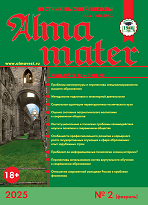Li Zhuoru, PhD student at the Sociology Faculty of Lomonosov Moscow State University (Russia); Editorial Director of the Association for World Political Economy (China) and Invited researcher at the Institute of State Security Studies, Nankai University (China), e-mail: liz@my.msu.ru
Igor N. Makarov, Senior researcher at the Federal State Budgetary Educational Institution of Additional Professional Education “Russian Academy of Personnel Support for the Agro-industrial Complex” (RAKO APK), e-mail: makarov_i_n@mail.ru
This paper analyzes the characteristics and developmental structure of the Chinese political elite in contemporary conditions. Using the methodology of historical and dialectical materialism, the study emphasizes the significance of CPC leadership. Key trends in the development of China’s political elite include the promotion of political stability, increased institutionalization, and enhanced political participation. A crucial aspect is the integration of socialist consultative democracy into the evolution of the political elite. The paper also examines the differences between the evolution of the Chinese and Soviet political elites, highlighting the uniqueness of China’s path to modernization and governance. Socialist consultative democracy strengthens the interaction between the elite and society through institutionalized channels, contributing to political stability and governance modernization. The study concludes that the successful development of China’s political elite is the main condition for maintaining the leadership of the CPC. It underscores that the CPC’s guiding role is a guarantee of the successful development and modernization of Chinese society.
Keywords: social structure, political elite, consultative democracy, modernization
Reference
- Marx, K. and Engels, F. Collected Works in 50 vols. Vol. 19. Moscow: Publishing House of Political Literature, 1961.
- Lenin, V.I. Collected Works in 55 vols. Vol. 7. Moscow: Publishing House of Political Literature, 1967.
- Lenin, V.I. Collected Works in 55 vols. Vol. 45. Moscow: Publishing House of Political Literature, 1970.
- Stalin, J.V. Works in 19 vols. Vol. 16. Moscow: Pisatel’, 1997.
- Mao Zedong. Selected Works. Vol. 2. Beijing: Foreign Languages Press, 1968.
- Xi Jinping. Be a Good Teacher Satisfying the Party and the People — Speech at a Discussion with Representatives of Teachers and Students of Beijing Normal University. Accessed September 10, 2014. URL: http://www.moe.gov.cn/jyb_xwfb/moe_176/201409/t20140910_174733.html
- Xi Jinping. Speech at the Opening Ceremony of the 10th Congress of the Federation of Literary and Art Circles and the 9th Congress of the Writers’ Association of China. Accessed November 30, 2016. URL: https://news.12371.cn/2016/11/30/ARTI1480507719327997.shtml
- Xi Jinping. Selected Works of Xi Jinping. Vol. I1. Beijing: Renmin Chubanshe, 2023.
- Official Online Resources of the President of Russia. “Joint Statement of the Russian Federation and the People’s Republic of China on Deepening Comprehensive Partnership and Strategic Interaction Entering a New Era on the Occasion of the 75th Anniversary of the Establishment of Diplomatic Relations Between the Two Countries.” Accessed March 23, 2021. URL: http://www.kremlin.ru/supplement/6132
- Whyte, Martin King, Ezra F. Vogel, and William L. Parish. Social Structure of World Regions: Mainland China. Annual Review of Sociology. 1977. 3: 179–207. URL: http://www.jstor.org/stable/2945935.
- Editor of the Central Committee of the All-Union Communist Party (Bolsheviks). History of the All-Union Communist Party (Bolsheviks): A Short Course. Moscow: OGIZ, Gospolitizdat, 1946.
- Kulpin, E.S. Technical and Economic Policy of the Chinese Leadership and the Working Class of China. Moscow: Nauka Publishing House, 1975.
- Fedorkin, N.S. The Leading Role of the State in the Formation of Civil Society in Transitional Countries. Space and Time. 2012. Vol. 1. No. 7. P. 27–36. Permanent Web Address: 2226-7271provr_st1-7.2012.13.
- Gudoshnikov L., Polyakov V. Development of the constitutional law of the People’s Republic of China. Problems of the Far East. 2004. No. 4. P. 47–52.
- Kahn-Ackermann, M. Cultural-Historical Contexts of Current Chinese Cultural Policy: Insights into China’s Cultural Self-Understanding. (ifa Input 01/2021). Stuttgart: ifa (Institute for Foreign Cultural Relations), 2021. https://doi.org/10.17901/AKBP2.01.2021
- Hegel, G. W. F. Science of Logic. Vol. 1. Objective Logic. Translated by B.G. Stolpner. Primedia E-launch LLC, 2017.
- Gu Hui. Transitional Class Structure and the Mechanism of Social Mobility Transformation: Theoretical Interpretation and Realistic Analysis. Zhejiang Journal. 2023. No. 6. P. 81–92. https://doi.org/10.16235/j.cnki.33-1005/c.2023.06.013
- People’s Daily, November 15, 1968.
- de Graaff, Nana. China Inc. Goes Global: Transnational and National Networks of China’s Globalizing Business Elite. Review of International Political Economy. 2020. V. 27. No. 2. P. 208–233. https://doi.org/10.1080/09692290.2019.1675741.
- Mamaeva N.L. Party and power: The Chinese Communist Party and the problem of political system reform. Moscow: Russian Panorama, 2007. P. 156.
- Fedorkin, N.S. Political Sociology and Political Management within the Field of Political Science. Moscow University Bulletin. Series 18. Sociology and Political Science. 2019. Vol. 25. No. 4. P. 209–226. https://doi.org/10.24290/1029-3736-2019-25-4-209-226
- Krylov, V.V. Production. Power. Property. Fursov on Krylov. Moscow: Association of Scientific Publications KMK, 2024.
- Baturenko, S.A. Sociological Theory of Social Stratification and Transformational Processes in Contemporary Russia. Moscow University Bulletin. Series 18. Sociology and Political Science. 2016. Vol. 22. No. 3. P. 92–108. https://doi.org/10.24290/1029-3736-2016-22-3-65-70
- National Economy of the USSR in 1990: Statistical Yearbook. Moscow: Finance and Statistics, 1991.
- Petrov, K. The Phenomenon of Gorbachev — The Era of Reforms: Soviet Eastern Europe and China. Translated by Ge Zhijiang and Ma Xiopu. Beijing: Social Sciences Literature Publishing House, 2001.
- Cheng, Enfu. Innovative Marxism in China: Selected Works. Moscow: Rodina, 2021.
- Suslov, M.A. Marxism-Leninism and the Contemporary Era: Selected Speeches and Articles in 3 vols. Vol. 3. Moscow: Politizdat, 1982.
- de Graaff, Nana, Tobias ten Brink, and Inderjeet Parmar. China’s Rise in a Liberal World Order in Transition — Introduction to the FORUM. Review of International Political Economy. 2020. V. 27. No. 2. P. 191–207. https://doi.org/10.1080/09692290.2019.1709880
- Farkas, B. China’s Political and Strategic Culture. Schriftenreihe der Landesverteidigungsakademie. Strategische Kulturen Ostasiens 1 (July 2023). URL: https://www.bmlv.gv.at/pdf_pool/publikationen/chinas_politische_und_stra...
- Osipova, N.G. Conceptualization of the Category of Society in the History of Sociology: Key Debates. Moscow University Bulletin. Series 18. Sociology and Political Science. 2020. Vol. 26. No. 2. P. 7–34. https://doi.org/10.24290/1029-3736-2020-26-2-7-34
- Six documents on restructuring in personnel matters — a real step in the reform of the political system. People’s Daily. 09.09.2004.











.png)






